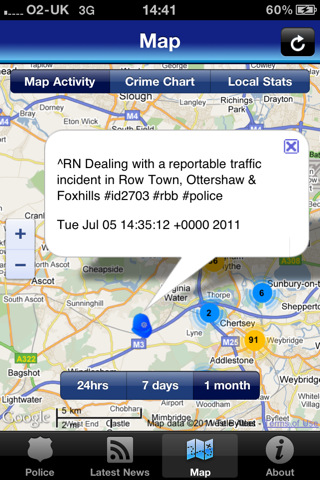Just how will Apple restrict device-ID snooping in iOS 5?
Apple is planning to phase out unique device identifiers from iOS 5, according to documentation sent out to developers, possibly to stop people worrying about their privacy on iPhones and iPads.
Apple developers have been told that the serial number will be “deprecated” in iOS 5.0 and they should “create a unique identifier specific to your app”.
There has been some debate among developers on blogs and forums about the meaning of the word “deprecation”, but the majority seem to believe it signals a complete phase-out of the UDIDs. Or at least a phase-out of developer usage of the numbers, though Apple may still have access to them.
Christian Henschel, director of partner development at madvertise, told the Reg it was sometimes difficult to work out Apple’s intentions, adding “you never really know what those guys are up to”.
As of publication, Apple had not responded to requests for comment.
The main issue for app developers if the UDIDs are removed is in tracking their audience. While the number is not supposed to be connected to any personal information, it’s nevertheless useful for developers to know that UDID number X (a 40-digit alphanumeric string) has downloaded certain apps, uses them a certain number of times or spends so much time on them, etc. Some mobile ad networks also use the UDID to target their advertisements.
“I think it has some impact for developers because the most important thing for developers is to analyse their audience,” Henschel said.
He suggested that one reason Apple might be ditching UDID access is to stop people freaking out about how smartphones use the data they hold.
An article in the Wall Street Journal in December said that iPhone apps had passed on UDIDs along with location, gender and age information to outside ad companies. The makers of the apps in question said the data they passed on couldn’t be linked to an individual’s name. But these kind of fine-line privacy issues have thrown the spotlight on UDIDs.
“There are techniques to connect hardware to some software,” Henschel said, adding that the amount of information stored on smartphones alongside the UDID – such as Facebook or email login details – had led to fears about how it could be used.
Henschel also pointed to the recent spat between the notoriously secretive Apple and analytics firm Flurry as a possible spur for the move. In January, Flurry reported that it had identified around 50 tablet devices in testing at Apple’s campus in Cupertino using its analytics.
The ironic breach of Apple’s own privacy led Jobs and Co to change the iPhone’s SDK terms of service.
“Some company called Flurry had data on devices that we were using on our campus – new devices,” Jobs said live at the D8 conference in New York.
“They were getting this info by getting developers to put software in their apps that sent info back to this company! So we went through the roof. It’s violating our privacy policies, and it’s pissing us off! So we said we’re only going to allow analytics that don’t give our device info – only for the purpose of advertising.” ®
Article source: http://go.theregister.com/feed/www.theregister.co.uk/2011/08/24/why_apple_is_phasing_out_unique_device_identifiers/

